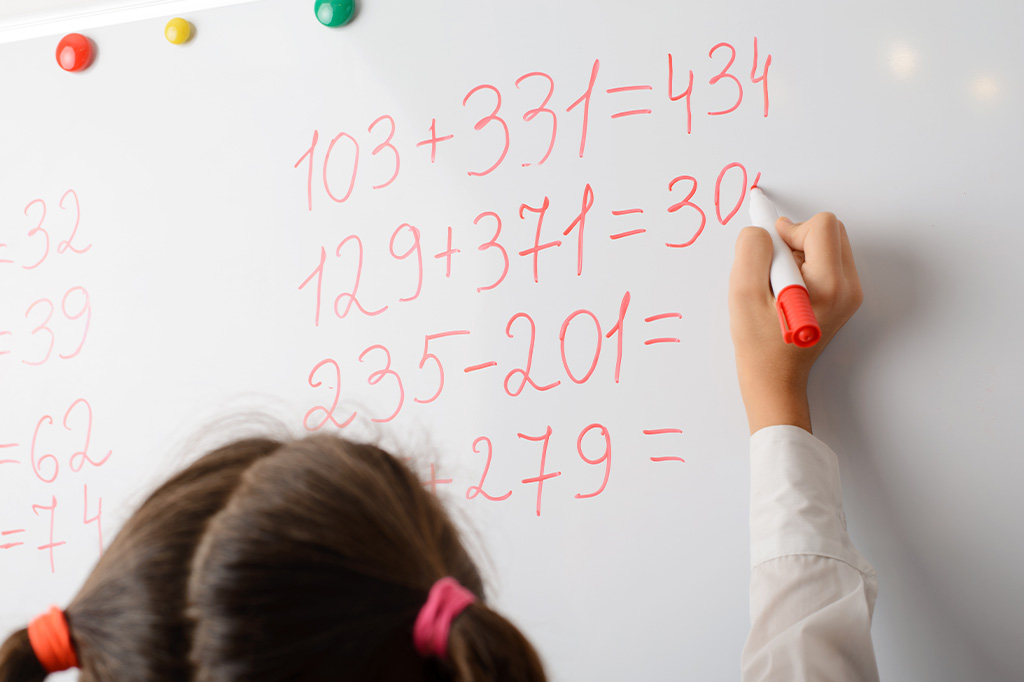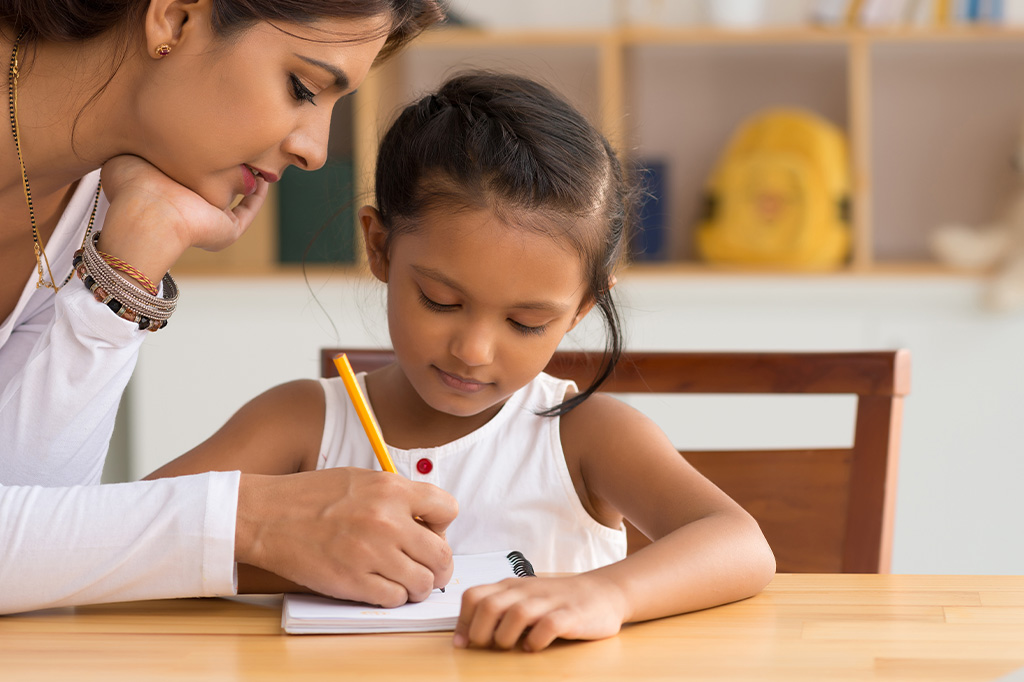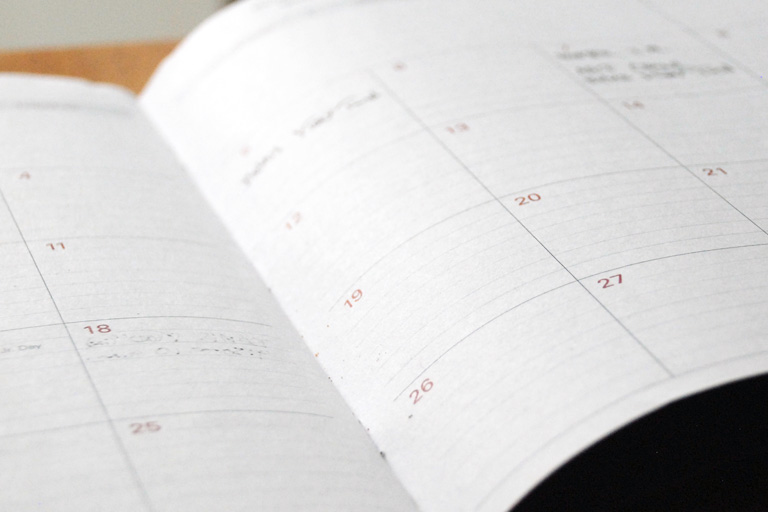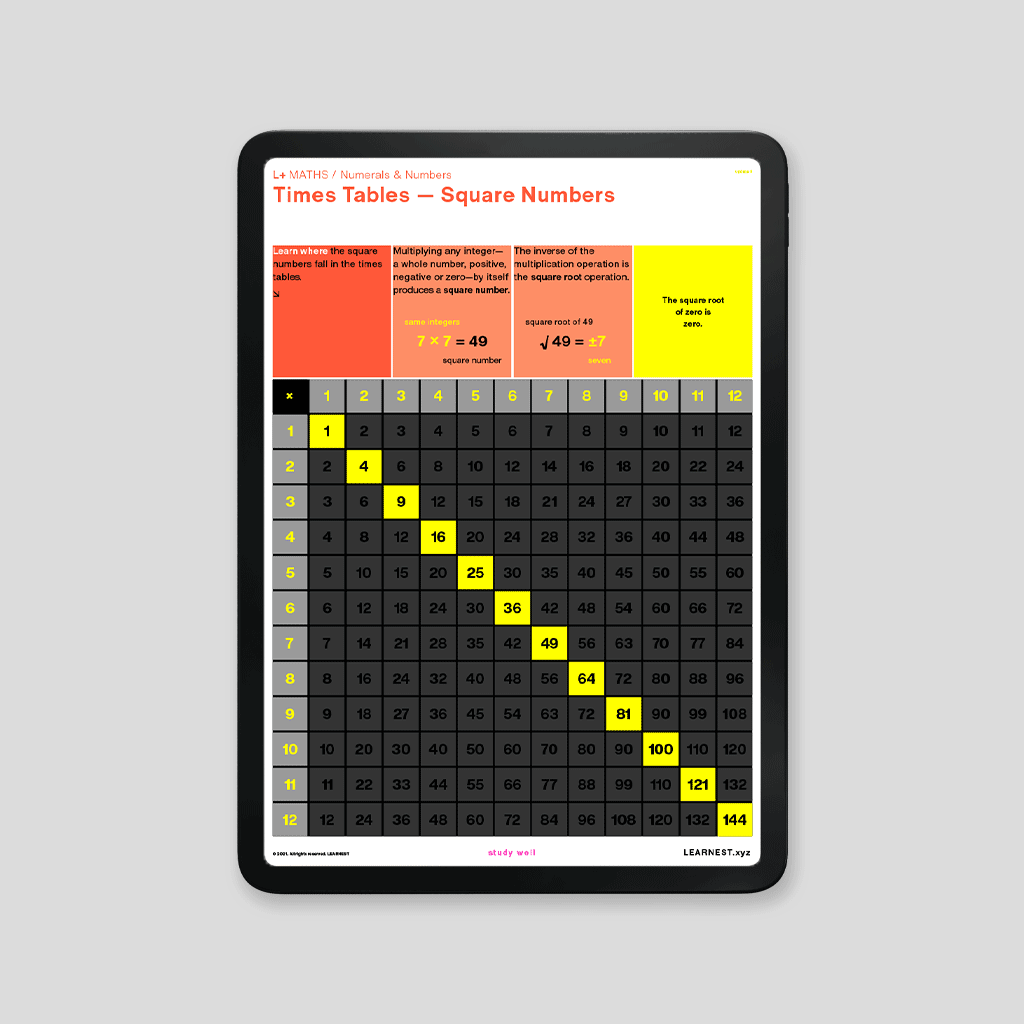The Importance of
Numeracy Skills

⏱️ 5 min read
Why learn numeracy skills?
Numeracy is one of the core areas children study in Primary schools. Not surprisingly, it reaches beyond the four basic operations (addition, subtraction, multiplication and division). Children learn how to work with percentages, ratios, angles, shapes, and much more.
In fact, all of these skills are essential to our lives—our world is full of numbers. The four basic operations, for example, help us to work out the total cost and change when shopping. Those who know how to calculate using percentages can go further, working out the price after offers and discounts.
A child with basic knowledge about fractions can share a piece of cake equally with their friends. Moreover, if they know how to convert recipes to the right amount using ratios, they can even try to bake one themselves.
As National Numeracy states, numeracy is
“the ability to use numbers
and solve problems in real life.”
It extends what a child can do independently in their life.
N.B. National Numeracy is a charity organisation employed by the government, which helps improve numeracy levels of both adults and children in the UK.

What they learn at Primary school
As students grow up, the demands of numeracy lessons increase. Beginning from counting numbers up to 100 to then using them in algebra, or from naming shapes to calculating the area of polygons, each topic piles up with new elements to learn every year.
Before transferring to Secondary schools, SATs and/or 11+ exams test a child’s numeracy skills on the areas they have learned in Primary education.
For some trickier questions, students need to combine multiple skills in two or more steps. For instance, consider the following example:
Ali travels 7.4km. Mary travels 630m. Yang travels 6 miles.
Who travels the furthest?
To solve a question like this, the student requires some base skills even before the maths begins.
They’ll need to know that 1km is 1000m, and to compare decimals to whole numbers (7.4km vs. 630m) almost automatically, before converting 6 miles into km.
A firm foundation in each numeracy topic is the key to this. Undoubtedly, a child who has trained their numeracy skills from earlier stages will more likely excel in using them in class. Moreover, it will carry through to their assessments.
Far beyond Primary school
The call for numeracy skills applies way beyond school—it’s a forever thing.
Throughout life, we all need to apply numeracy skills just to get by. For example, daily financial management or interpreting simple diagrams at work.
Hence, having or not having numeracy skills, therefore, can impact a life intensely. Indeed, not surprisingly, researchers report that adults feel an increase in confidence and self-esteem after training their numeracy skills.




A study by the National Research and Development Centre for Adult Literacy and Numeracy investigated how improving numeracy skills affects adults’ self-esteem.
Strikingly, adults who took part in numeracy courses reported that they were “more able to voice their opinions, had a growing sense of their own potential […] and a greater sense of their achievements and growing skills”.
The findings suggest that a strong foundation of numeracy skills raises a person’s confidence, both at individual and social levels.
How children develop numeracy skills
Since our world is filled with numbers there are many informal opportunities to pick up and practise numeracy skills.
- First of all, seeing numbers when out and about brings numeracy into their lives. For example, clocks, door numbers, team player numbers, buses, car registration plates, signage everywhere and so on.
- They begin to absorb how numeracy is used—planning our timetables, shopping exercises or in their games, for example.
- Following on, playing with the numbers around them begins to hone their skill factor. For instance, putting numbers in size order or making sums from them.
- Subsequently, increasing addition, subtraction, multiplication and division knowhow—especially times tables—is fundamental for all children. Regular practice is the key to increasing speed and accuracy in calculation. In exams, that leaves more time to spend on solving the trickier questions.

How does Learnest add up
Learnest materials support children to develop their numeracy skills from Pre-School, then throughout the prescribed Primary school curriculum. We hope you’ll start them early to make school easier, and become truly friendly with numbers.
L+ materials teach the other dimensions of numbers. For example, their fascinating history or the useful vocabulary which derives from numbers. L+ even covers how to read and write Roman or Egyptian numbers!
Putting our money where our mouth is, Learnest’s Beans currency is a chance for the students to practise numeracy in a real-life situation. Moreover, as they study more the Bean Rewards system will motivate and excite them. That’s good practice!
Posted 28 April 2021
Authored by Asano Katashima
Edited by Elliot Paine
2021 © All Rights Reserved. Learnest.xyz